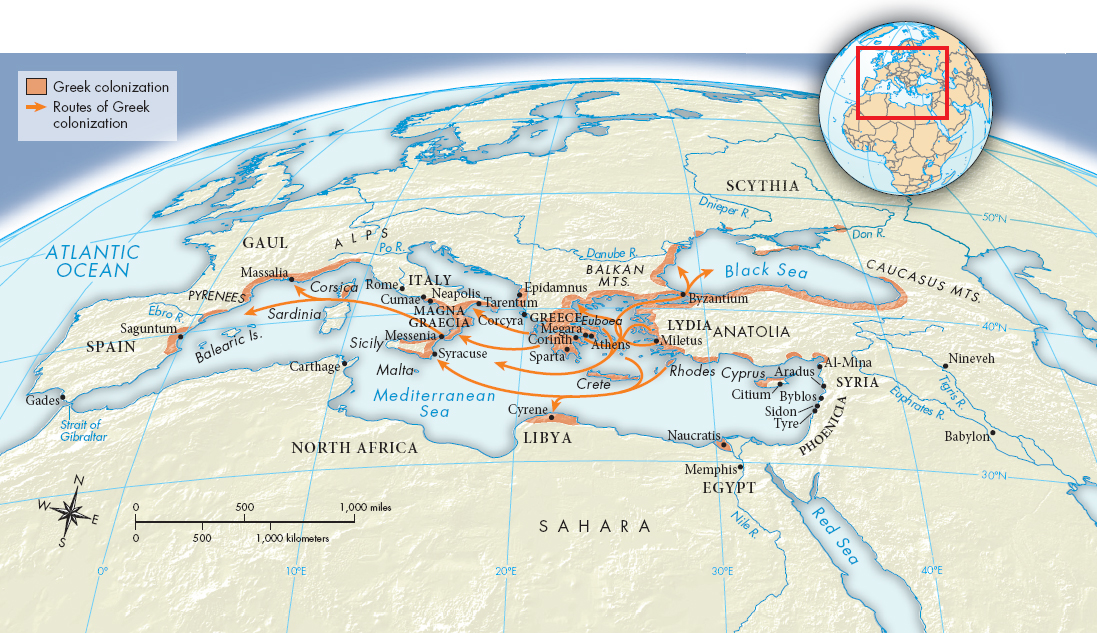Overseas Expansion
The development of the polis coincided with the growth of the Greek world in both wealth and numbers, which brought new problems. The increase in population created more demand for food than the land could supply. The resulting social and political tensions drove many people to seek new homes outside Greece.
Greeks from the mainland and Ionia traveled throughout the Mediterranean, sailing in great numbers to Sicily and southern Italy, where there was ample space for expansion (Map 3.2). Here they established prosperous cities and often intermarried with local people. Some adventurous Greeks sailed farther west to Sardinia, France, Spain, and perhaps even the Canary Islands. In Sardinia they first established trading stations and then permanent towns. From these new outposts Greek influence extended to southern France.
Colonization changed the entire Greek world, both at home and abroad. In economic terms the expansion of the Greeks created a much larger market for agricultural and manufactured goods. From the east, especially from the northern coast of the Black Sea, came wheat. In return flowed Greek wine and olive oil, which could not be produced in the harsher climate of the north. Greek-

 Greek Colonization, ca. 750–
Greek Colonization, ca. 750–New colonies were planned and initially supplied by the metropolis, or “mother city.” Once founded, however, they were independent of the metropolis, a pattern that was quite different from most later systems of colonization. Colonization spread the polis and its values far beyond the shores of Greece.